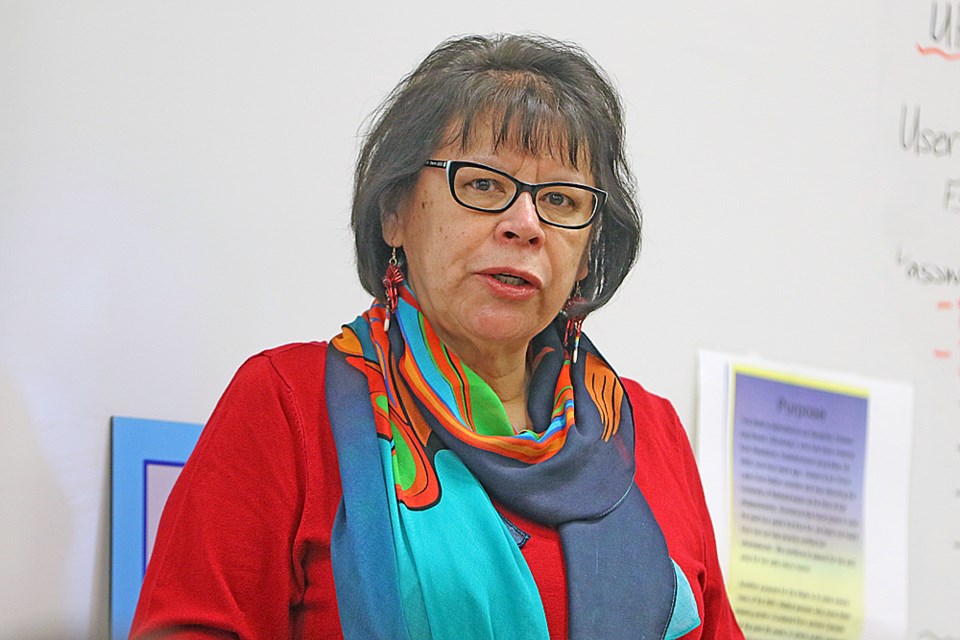In 2007, Myrna LaPlante’s 78-year-old aunt, Emily Osmond, went missing from her home near the Kawacatoose First Nation.
That lead to a chain of events where she became involved in a group that supports the families of missing and murdered Indigenous women and girls, Iskwewuk E-wichiwitochik, Cree for Women Walking Together.
LaPlante, who’s the co-chair of the group, spoke at Cumberland College’s Nipawin campus on International Women’s Day, March 8.
“Never in your time will you need so many people as when our aunt Emily went missing. We didn’t know who to turn to,” she said, speaking to audiences in Nipawin, Melfort and Tisdale. “We didn’t know what to do and we didn’t have any resources back in 2007.”
Iskwewuk, which is based in Saskatoon, was formed in 2005. LaPlante got involved in 2007. The group provides moral support to the families of missing and murdered Indigenous women and girls (MMIWG), ensures the memories of MMIWG are kept, fights systemic issues like sexism, racism and poverty, provides support in the courtroom, is involved in the national inquiry into MMIWG, and helps with search efforts to find MMIWG.
LaPlante said being part of the group connected her with others facing similar circumstances.
“It’s not the way you want to develop a huge amount of friends, but it is a topic that’s bringing us together at the moment.”
Sadly, her nephew Cody Wolfe would also later go missing.
“In 2011, when our nephew Cody went missing, we had a whole lot more resources at that point in time and we had already developed a big family of MMIWG and I had joined this network, so we had a lot more resources.”
Neither Osmond nor Wolfe have been found.
LaPlante said while there have been successful prosecutions of some murderers, there’s still a long way to go. There’s still believed to be about 1,200 MMIWG in Canada.
“The situation continues to be dire. There’s still many missing, many unaccounted for.”
As for what kind of changes LaPlante would like to see in law enforcement connected to the issue, she was quick to answer.
“I think we need a national indigenous police team to respond to these cases immediately.”
LaPlante said she believes something like that will come from the national inquiry.




